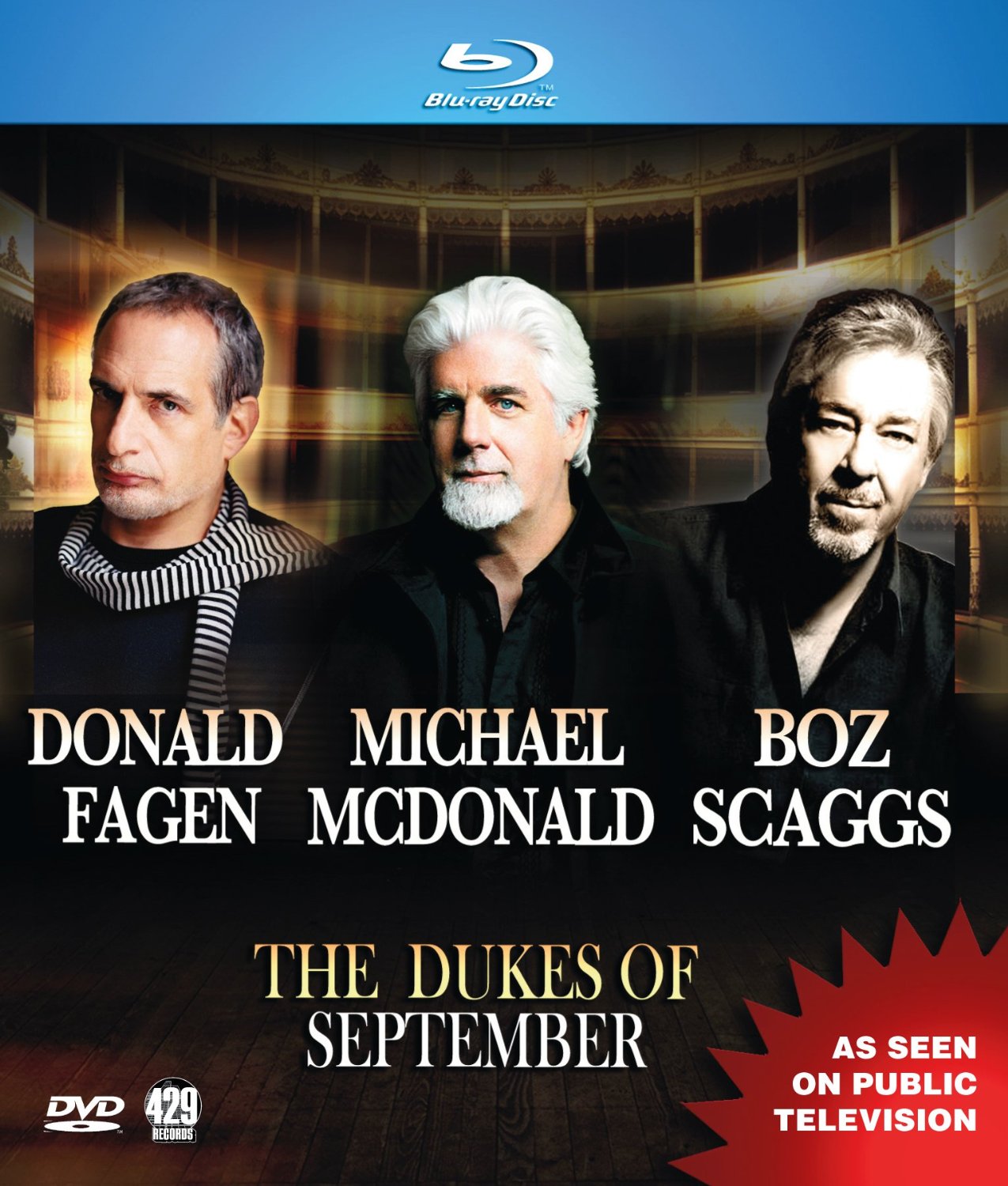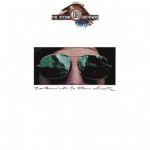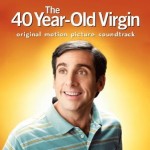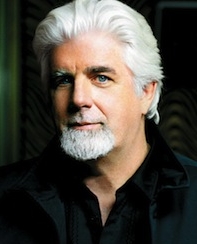Michael McDonald is a 5-time Grammy winner who sang for a time with Steely Dan and The Doobie Brothers, and has also had a notable and successful solo career. Highlights of his catalog include “I Keep Forgettin’ (Every Time You’re Near)”, “You Belong To Me”, “It Keeps You Runnin'”, “Minute By Minute”, “What A Fool Believes”, “Takin’ It To The Streets”, “Yah Mo B There”, “Sweet Freedom”, and his cover of “Ain’t No Mountain High Enough”.
This interview was for a preview article for a benefit concert on 7/27/14 in the Funk Zone of Santa Barbara for the organization Youth Interactive. It was done by phone on 7/21/14.
Jeff Moehlis: You’re performing at a benefit for the organization Youth Interactive. Could you tell us a bit about how you got involved with that organization?
Michael McDonald: In a nutshell, my daughter Scarlett is an intern volunteer for the organization. She told me about it, and I was so impressed with the idea of the program. It’s an entrepreneurial academy, free of charge, non-profit, afterschool. It’s available to all the kids in this area, Santa Barbara especially. It’s an opportunity for kids who have an artistic talent, or an idea for a small business. It teaches them the rudimentary steps to starting a small business, and how to network with local businesses that might help them, that might carry the products or things like that. And what’s unique about it is that the local businesses do a lot to participate in the program.
For instance, an untypical scenario, just taking one of the kids’ stories. He was a street artist, a tagger, looking at about two years of jail time. The courts approached the program, because they do interact, and a lot of the kids come to the program through a recommendation by the juvenile courts or the courts. They made contract with him that he would not tag anymore illegally, and they gave him the opportunity to start developing his skills a little further, and his brand, which he had already done a good job of developing.
So he applied that to a clothing line, sneakers and T-shirt design, and some of the stores locally are carrying those. He also had a lot to do with some of the new murals down in the Funk Zone. You know, the Funk Zone itself is kind of largely becoming an outdoor gallery for socially conscious young artists and mural artists. At one time they would’ve been hard pressed to find a place where they can express themselves legally, and not be looking at getting in trouble and having problems with the courts. So here this kid goes from looking at two years of jail time to being a mentor in the program himself for younger artists coming in, having developed his own line and making a livelihood from his art and his brand. He has a young baby himself, him and his girlfriend. He has a job outside of his art, but his art does a lot to help him with the financial burden of raising a child. And instead of languishing in jail for a couple of years, this is what his life has turned the corner for. It’s a wonderful thing.
One of the girls in the program is a teen. She was pregnant, dropped out of school. She has started a line of food items, one of them being organic biscotti that’s being carried by stores in the area, coffee shops and stuff. She’s actually in a situation now where she’s hoping to develop that idea, and employ other kids, you know, her friends and family, to help her develop the small business into something that could be a good livelihood for her here locally.
It’s a great program, and the entrepreneurial component, I think, makes it more interesting than a normal arts outreach program where you’re just teaching kids about art and developing artistic skills. This actually takes it a step further, and they really connect with this stuff, and in many cases many of them already have. It brings them into an arena where they can actually do something with it in ways that aren’t always obvious to young people at that age.
One thing that’s great about the program is it’s open to all kids of all economic strata in our community, and in all walks of life. But I think it’s most profound as an experience for the low income kids, because for them the opportunity, let’s face it, is much greater than for the kids that grew up in Montecito. It really serves our community well on every level. And I think it’s a win-win for businesses because it’s obviously developing the Funk Zone as an artistic center. It’s a wonderful thing culturally for our community. It’s great for the city. It’s great for the kids. It’s great for us residents to become an area where there’s opportunity, and more and more of our young people learning that there’s opportunity right under their nose if they’re given a little bit of guidance to look for it.
JM: Sounds amazing! What can we look forward to at your performance?
MM: Myself and Ambrosia are going to play. It’s a pretty impromptu kind of show, it’s kind of a big jam session if you will. Yassou Benedict from San Francisco is going to play. A group from Nashville, Dylan McDonald & The Avians are going to play. They’re a rock band, but they’re from Nashville, Tennessee. [Dylan is Michael’s son.]
We’ll just do all the stuff that I’ve done over the years with the Doobies and my solo act. A lot of the stuff that the Ambrosia guys have had hits with during the 70’s and the 80’s.
JM: Do you live in Santa Barbara now? I know you lived here before.
MM: I live here, you know, back in the area. I was away for a while, down in Nashville for about 15 years. We just recently in the last few years moved back to the Santa Barbara area.

JM: If you don’t mind going back in time a little bit, you got on the map when you sang with Steely Dan. How did you get that job, and what was that experience like?
MM: Well, those are really great memories for me. When I got that job it was one of those rare things that I felt really fortunate, because I didn’t just get a good job, at least for the time I thought it was a great job, but it was actually with one of the bands I loved the most in my whole experience of growing up and listening to music. They were probably at the time my all-time favorite group. So to get that job meant a lot to me. I toured with them all around the world, pretty much, played in Europe and the U.S. Then I went on to record with them through the next ten years or so. So it was a great relationship.

Most recently I worked with Donald on a tour. We had one band [The Dukes of September Rhythm Revue] – it was he and I and Boz Scaggs. It was a lot of fun. It was kind of a self-indulgent kind of tour, where we just played a lot of old R&B stuff that we all grew up listening to. So we had great fun doing that.
I guess I’m at the age now where when I’m onstage with guys that I’ve met in my twenties, I kind of marvel at the fact that I still get the chance to get onstage with these guys after all these years. I never really saw that coming. If you would’ve asked me in my thirties, do you think you’ll be playing with Donald Fagen or Boz when you’re sixty, I probably would’ve said, well, “Probably not.” It’s a real thrill and a real privilege to be able to work with those guys still to this day. We’ll be out this summer touring with Toto, which are guys I also go way back with. I guess I’m as surprised as anyone that we’re all still doing it and we all get to play together.
JM: It turns that I interviewed Tom Johnston just a few weeks ago. I asked him a form of this question, and I’m interested in getting your take on it. When you joined The Doobie Brothers, there was a bit of a change in direction for the band. Did you feel any resistance to that, or were they pretty much on board?

MM: Well, I think for everyone involved, when I joined it was a bit of a scramble, only because Tom was such an important presence in the band. He was kind of a leading force in the band, him and Pat [Simmons] both. I think it was largely to Pat’s credit that the band stayed together. When I came in, we were just trying to come up with anything that would make an album. And Tom was involved with that record [Takin’ It to the Streets], too. He had one of the better tracks on that record [“Turn It Loose”]. But it couldn’t help but be a little different, more because of his absence than because of my presence, you know what I mean? We were just kind of doing anything. It was kind of like anything goes at that moment in time. That really brought about whatever change in direction it was than anything else.
People always say, “You really changed the Doobie Brothers sound,” but really it was a group effort. It was really more of a group participation. I can’t really take credit for the whole enchilada myself. I mean, I wrote some of the songs, and the guys did a great job recording those songs, and we co-wrote a bit. But we were really kind of just scrambling to keep the band going and keep the band together.
And I think the one thing I’ve always appreciated about The Doobie Brothers is they are really a band. They always were. And most everybody involved, especially Pat and Tommy, that’s been their whole career and identity, being a member of The Doobie Brothers. All the decisions we made were hopefully thinking about what was best for the band. When Tom took a hiatus there for a while, for health reasons that couldn’t be helped, that had more to do with changing things than really any contribution on my part or anybody else’s part. We were just trying to find some level ground, to try to get going. And we came up with a little different direction for a while.
But Tom’s songs were always a big part of the show whenever we played live. And Pat’s also, like “Black Water”. All those songs were always the high points in the show. We just kept the thing rolling. You know, the original band eventually got back together in the ’80’s. But don’t get me wrong. It was a great opportunity for me, and the only reason I probably still can go out and work with my own band is largely my tenure with The Doobie Brothers.
JM: It’s good to hear that you and Tom get along well. You hear about these bands that have a falling out.
MM: Yeah, actually Tommy’s one of my favorite people in all the world. And I don’t say that jokingly. He’s just a great guy. And Pat, we’re all still great friends. We recently did a record together, kind of a Doobies tribute album in Nashville with some young country artists. It was a lot of fun. At this point, it’s just fun to get back together for whatever excuse we can come up with. So I always enjoy seeing those guys, and I always enjoy getting the chance to play with them again here or there.

JM: Your music and your voice in particular have been used for various pop culture references, you know, the Yacht Rock video series and The 40 Year Old Virgin and so on. Does this sort of attention crack you up?
MM: Oh yeah, it’s great stuff. I love it. And, of course, you know my kids were kind of little when all that stuff started, so they just got the biggest kick out of it. Whenever they did something on Family Guy or whatever, the kids would tape it and make sure I saw it. Yeah, it’s just great fun. I get as big of a kick out of it as anybody, I would guess.
JM: You’ve recorded and performed with a number of artists over the years. Are there any that particularly stick out to you?
MM: Yeah, to me kind of the thing I felt was one of the best parts of working in L.A., when I came out and started working in L.A., was getting to meet people I had admired growing up. Like getting to meet Ray Charles, and getting to work with Kenny Loggins. To this day I still think about that, and I think that was such a wonderful moment in time, at least for me and hopefully for him, too. We got to write some songs that have lasted through the decades, and who’s to say that ever would have happened just by chance. Almost all that stuff I look back on with a bit of wonderment, like, wow. Any number of events could’ve steered me in a different direction, and luckily they didn’t.
I mean, when I called to audition with Steely Dan it was just because I had worked one gig with a guy that I hadn’t talked to since, a year and a half before that. We did a casual show, a Christmas party at Universal Studios for a TV show that was wrapping up. We just kind of threw a band together, and he and I had never really met before that, and really hadn’t talked since then. He called me out of the blue and said, “Hey, I told these guys that you could play some extra piano and keyboards, and sing. So why don’t you come down and audition?” And, of course I jumped at the chance, but it was such a fluke that this guy would even remember me and call me up to do that.
JM: What advice would you give to an aspiring musician?
MM: I would say to stay intimate with that part of this that really makes you happy. Because you can lose sight of what that is. This job, like any other job, will become tedious at times. And those are the times when you most need to kind of take yourself back to what it was that initially spoke to you about it, what initially made it your passion. This career, or any career, it’s like a marriage, you know. You have to sometimes sit down and look back and remember what it felt like the first time you played at the VFW Hall in your small town, and thought, “Wow, I could do this for a living”, and how exciting that was. How that made you feel for the first time, like you had a purpose. Basically it’s on that level that we find a real happiness in anything. I don’t think it’s ever the amount of money we make at it, or the amount of celebrity we might get from it. It really lies in much simpler things.
I think that most musicians, we’re passionate people, but we’re also impressionable people. We come to see things through other people’s eyes. Sometimes more than we should, and we have to kind of hang onto what it is that is ours in the bargain. I think there was a period of time when I just really got tired of chasing the whole thing, trying to stay working and trying to keep my slot whether it was studio singing or as a recording artist, or whatever it was. And I had to really go back and go, “You know, I’m forgetting what I really always enjoyed about this.” And that’s really something I don’t have to worry about anybody taking that away from me, but me. So if I’m willing to concentrate on that, and not worry about all the rest of it so much, I’ll be OK. I think that’s an important thing for any young musician who wants to make this a career for life.
Some of the best musicians I’ve ever known, literally, and some of the happiest musicians I’ve ever known are guys that taught music in music stores, or taught music at school. They weren’t looking to become a rock star, or get the band on the charts. They were just happy to be a musician and have the privilege of making a living at it.
JM: What are your plans, musical or otherwise, for the near future?
MM: I’m doing a record. I’ve got a record that’s going to come out hopefully by the first of next year, if not before, that I’m excited about. I’ve had a great time doing it. It was kind of an unlikely record in a way, because it came around through the back door for me. When I moved to Nashville I bought a little studio with a buddy of mine who’s a musician there, a great session drummer. In fact, he’s playing with Toto this fall when we go out. But he and I had a little studio down there, and he’s a great engineer, too. So whenever we did demos, whenever I demo’d a new song… I do that kind of ongoing, and half of them I forget about. I may never even remember what hard drive it’s on, or where the hard drive is. I’m terrible with that stuff. But he was good for that with me, because he was used to having a studio and keeping things straight. Much more Type A than I am. When I’d make make a demo, I’d say, “Hey, play some drums for me”, and he would engineer and play drums at the same time, believe it or not. We would just make these rough little demos of all these songs, song ideas.
For about eight years we did this, and about a year ago he said, “I pulled out that file, and I started listening to all that stuff we’d done. I picked a few of them and I redid the drums on them to bring them up to speed sonically.” He changed some of the drum patterns. “You should think seriously about putting this out, because some of these things are real good.” So I listened to it, and I was surprised what he had already done, just changing the drums made them come to life somewhat. I started redoing some of the keyboards. And I had played guitar on a couple of them, which is never a good idea, so we got a guitar player and we actually put real guitar on the stuff. And doing background vocals, bringing the songs along arrangement-wise. It was surprisingly turning out well.
So that’s how this record came about, eight years of demos I made in Nashville. That’ll be done hopefully by the first of next year. It was one of those things where I kept thinking I have to do another studio record of original songs at some point, and I guess I didn’t realize that to a large extent I had already started one. We’ll probably put that out in the first of the year. We still have to come up with a title for the record and find a label, but right now it’s kind of an indie project that we’re doing.
That, and touring with Toto and doing a Christmas tour, late November and early December up to Christmas. Then I think I’m going to go over to Hawaii and kind of hide out after Christmas, as long as I can get away with. Just kind of surf a little bit and sit by the beach and try not to wear any pants or shoes for a while.
JM: [laughs] That’s what we imagine the yacht rockers doing, right?
MM: Yeah, I’ll wear my old Captain’s hat [laughs].


Discussion
No comments for “Interview: Michael McDonald”